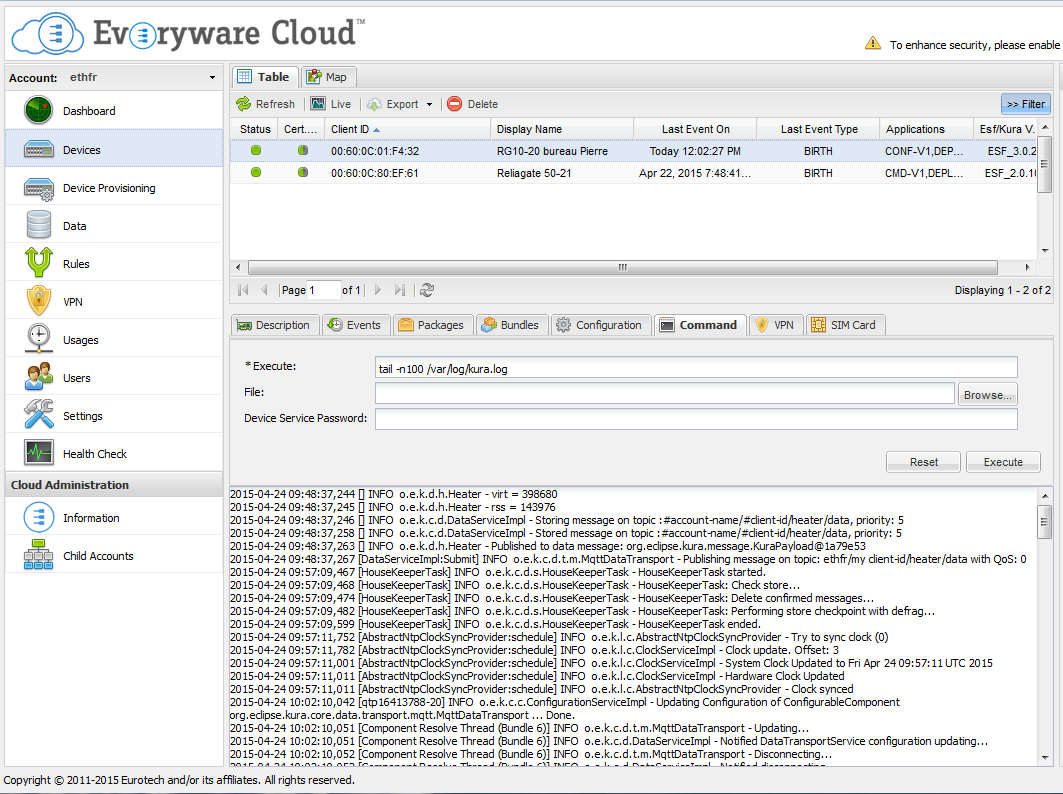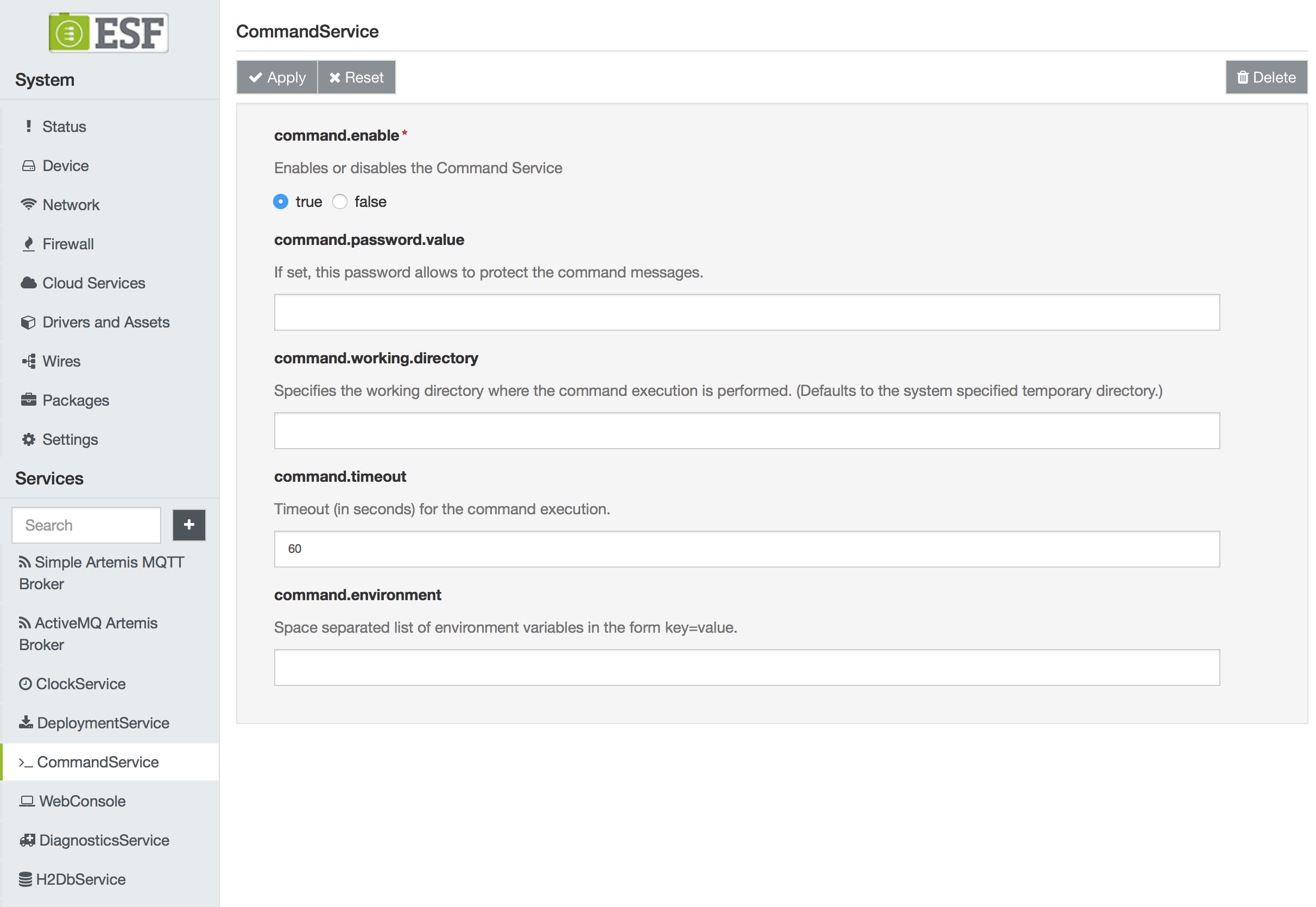Command Service
The CommandService provides methods for running system commands from the web console. This service also provides the ability for a script to execute using the File option of the Command tab in the Everyware Cloud Console as shown in the screen capture below. This script must be compressed into a zip file with the eventual, associated resource files.

Once the file is selected and Execute is clicked, the zip file is sent embedded in an MQTT message on the device. The Command Service in the device stores the file in /tmp, unzips it, and tries to execute a shell script if one is present in the file.
Important note: when decompressed, the script loses its executable attribute. To fix this problem, if you plan to execute a script, the command entered into the "Execute" line must trigger the execution:
bash[name of the script] .
To use this service, select the CommandService option located in the Services area as shown in the screen capture below.

The CommandService provides the following configuration parameters:
-
command.enable - sets whether this service is enabled or disabled in the Everyware Cloud Console. (Required field.)
-
command.password.value - sets a password to protect this service.
-
command.working.directory - specifies the working directory where the command execution is performed.
-
command.timeout - sets the timeout (in seconds) for the command execution.
-
command.environment - supplies a space-separated list of environment variables in the format key=value.
When a command execution is requested in the Everyware Cloud Console, it sends an MQTT control message to the device requesting the command execution. On the device, the Command Service opens a temporary shell as root in the command.working.directory, sets the command.environment variables (if any), and waits for command.timeout seconds to get command response.
Updated 4 months ago
